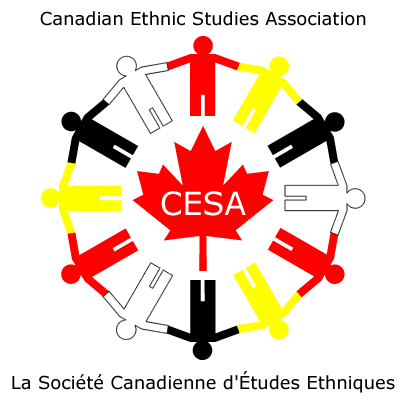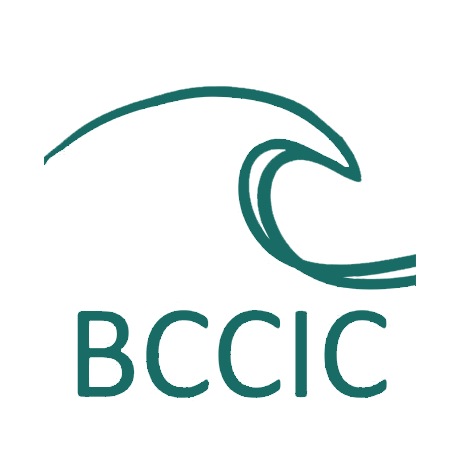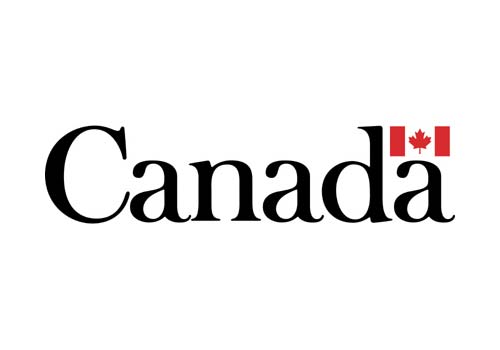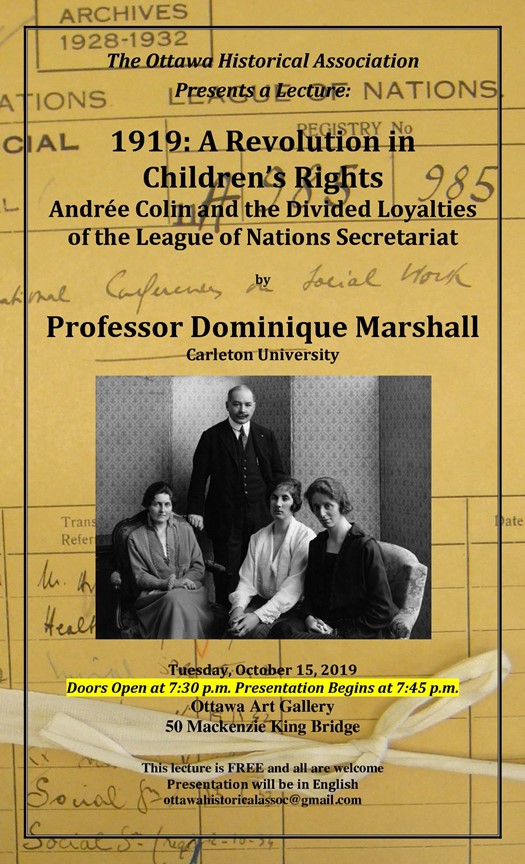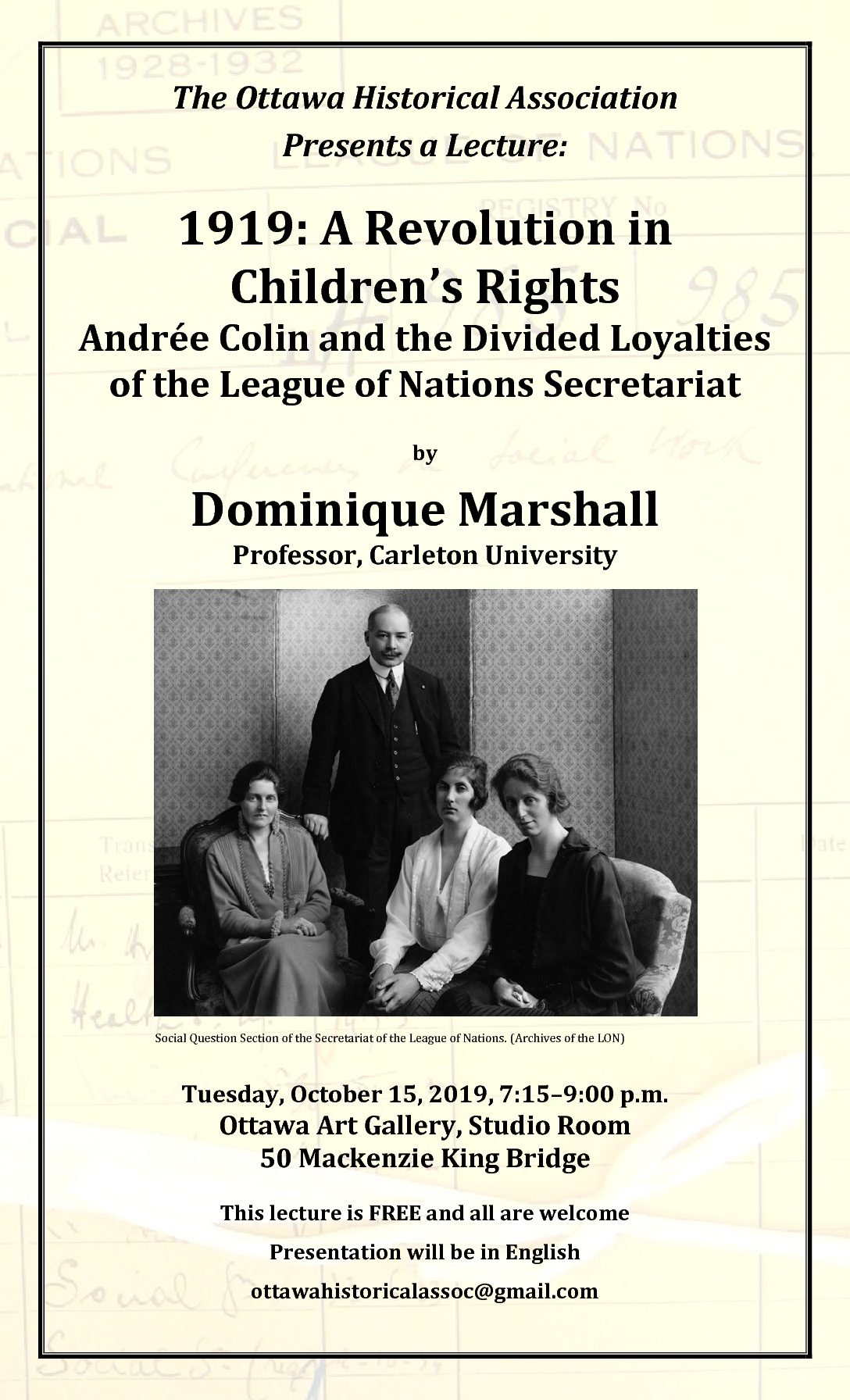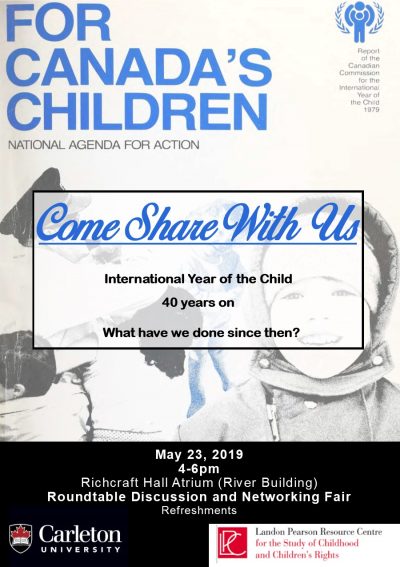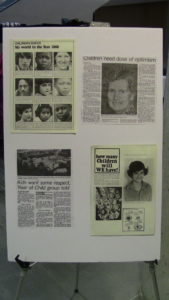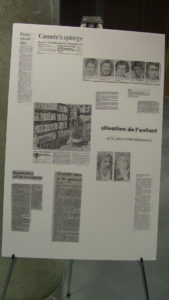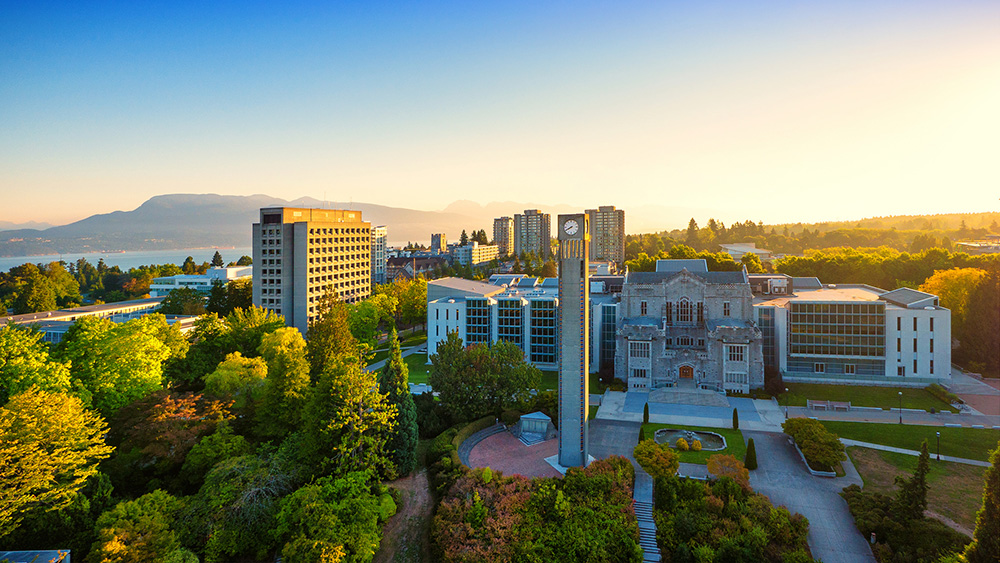Our Advisory Group member, Professor Dominique Marshall, has recently notified us that with the assistance of Dr Sarah Glassford, historian of the Canadian Red Cross, selected materials from the Canadian Red Cross archives have now been deposited in the Archives and Special Collections of Carleton University’s MacOdrum Library (Ottawa, Ontario, Canada).
Continue readingPage 8 of 23
Immigration Politics, Refugee Crises, and Ethnic Dynamics in the Turbulent 2010s: Canada and Beyond.
Deadline EXTENDED: 24 February 2020.
The Canadian Ethnic Studies Association (CESA) invites panel and/or paper proposals for its upcoming 26th conference on the theme of “Immigration Politics, Refugee Crises, and Ethnic Dynamics in the Turbulent 2010s: Canada and Beyond”. The 2010s was a decade in which the issues of immigration policy, border security, rising ethnic tensions, new and ongoing regional and national political conflicts, multiple displacements and escalating refugee crises dominated the news in many different countries – from the United States and Canada in North America to the UK, Germany, Italy, Spain and Greece in Europe, and to China, Australia, Myanmar, and New Zealand in East Asia and Oceania. This dominance was so pronounced that the immigration/ethnic issues became one of the paramount forces in determining the political directions and election results in different countries; they also led to the rise of a new right-wing populist discourse as well as new and old uncertainties about the meaning and possibility of citizenship, identity / sense of belonging, freedom, human rights, and justice. Meanwhile, despite the conservative and exclusionary politics in various western countries, citizens’ groups and solidarity movements have emerged or strengthened existing voices that support inclusion and integration of migrants and refugees. Finally, this decade also witnessed technological advancements, which not only changed state organization, the economy and the social world that we live in, but also shifted the methodological landscape, pushing the research frontier in immigration and ethnic studies.
This conference provides a forum to discuss a wide range of issues related to immigration and ethnic dynamics during this turbulent decade, and to offer perspectives for the future. The participants are invited to address any aspect of this changing landscape, including (but not limited to):
- The place of Canada in the global migration scene
- The global impact of Canadian immigration policies and practices
- The treatment of immigrants and refugees; promises and limitations of Canada’s immigration policy
- Regional particularisms in immigration policies
- Multiculturalism: policy, practice, evidence; and benefits, limitations, challenges
- Ethnic diversity and cultural vitality
- Implications of the changing global landscape on Canada’s immigration and multiculturalism policies
- Immigration discourse at a time of rising populism
- The interplay of international migration trends and ethno-cultural and religious communities in Canada
- The experiences of particular immigrant and newcomer communities
- Indigenous populations and relations with immigrants and newcomers
- Immigration and the smaller cities and rural areas
- The roles, contributions, and challenges of immigration/settlement agencies
- Immigrant and refugee youth: health, education and integration issues
- Immigrant and refugee seniors
- Migration and gender-based violence
- Refugees: trauma, survival and integration
- Big data and big ideas in immigration and ethnic studies
CESA invites theoretical and empirically-based contributions, individual papers and/or fully formed panels, standard papers or presentations in other formats (e.g., posters, roundtables, films), and all the above from a variety of disciplinary or interdisciplinary perspectives.
The venue for the 26th Canadian Ethnic Studies Association’s conference will be Saint Mary’s University, located in the historic port city of Halifax, Nova Scotia, a vibrant, urban community of over 400,000 people. Halifax is Atlantic Canada’s major educational centre and home to five universities, with a long history of immigration, settlement and diversity. Saint Mary’s University is located in Mi’kma’ki, the ancenstral and unceded territory of the Mi’kmaq.
Who Should Attend?
In addition to members of the Canadian Ethnic Studies Association, the conference will be relevant to a wide range of people interested in history, ethnicity, race, immigration and citizenship issues in Canada and internationally. University professors, graduate students, other researchers and teachers; policymakers and civil servants from all levels of government; those who work in various non-governmental organizations, as well as those involved as frontline workers delivering various kinds of social services – all of these will find that this conference offers them worthwhile information, challenging critical perspectives, and an opportunity to network and discuss important issues with people from across the country and from a variety of academic disciplines and institutional perspectives.
Proposals.
Conference organizers welcome proposals for papers, panels, roundtables, posters and video presentations that address any of the related topics. Organizers invite submissions from a variety of perspectives, academic disciplines, and areas of study.The deadline for submission of proposals for papers, sessions, panels, roundtables, and poster presentations is February 15th, 2020 February 24, 2020. The decisions on the submitted proposals will be communicated by March 30th, 2020.
All abstracts should be no longer than 250 words and will be refereed by the CESA Program Committee. Individual conference presentations will normally be 20 minutes in length, and conference sessions will be 90 minutes. Abstracts should be directed electronically to: cesa2020@smu.ca
CNHH members Jill Campbell-Miller and Kevin Brushett at the recent Annual General Meeting of the BCCIC. The following blog from BCCIC focuses on the presentation given by Dr. Campbell-Miller regarding the history of the BCCIC as an organization. Dr. Brushett’s presentation, not featured in the blog to follow, spoke about the history of international cooperation in Canada more generally. Continue reading
Global Affairs Canada – Foreign Policy Research – PORH
Ottawa (Ontario)
HR-04
$88,704 to $98,569
Closing date: 8 January 2020 – 23:59, Pacific Time
Who can apply: Persons residing in Canada and Canadian citizens residing abroad.
For further information including the online application process, please visit the Government of Canada job postings website.
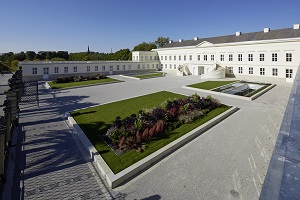
Call for Participants: Governing Humanitarianism-Past, Present and Future
The Herrenhausen Conference “Governing Humanitarianism” interrogates present issues and future directions for global humanitarian governance in relation to its pasts. Scholars from various disciplines and practitioners in humanitarian sectors are invited to join the event at Herrenhausen Palace, Hanover, on September 13-15, 2020.
Humanitarian organisations across the globe face growing challenges in delivering aid, securing funds and maintaining public confidence. Trade-offs between sovereignty, democracy, security, development, identity and human rights have become highly complex. Self-appointed guardians of the public conscience are now also major sub-contractors of governments, sometimes critics of the very institutions they rely on for funds. Continue reading
1919: A Revolution in Children’s Rights
This talk was delivered by Dr. Dominique Marshall on 15 October 2019 at the Ottawa Art Gallery, sponsored by the Ottawa Historical Association. This page is cross-posted with the Ottawa Historical Association website.
In 1924, the main employee of the Belgian based “Association internationale de protection de l’enfance”, moved to Geneva, as part of the agreement concluded by her employer with the League of Nations (LON). As one of the handful of members of the Social Question Section of the Secretariat of the LON, a position she occupied for 17 years, she travelled to international conferences, maintained an abundant correspondence, and supported the work of three successive directors of the Section. The papers she left in the archives of the LON reveal a network of Catholic charities, social workers and civil servants, as well as a group of French speaking reformers, who offered alternative notions of universal children rights, during debates otherwise dominated by Britain and the United States. The talk speaks of the many tensions behind the apparent simplicity of the first universal Declaration of the Rights of the Child of 1924, such as the nature of childhood in colonial territories, the very definition of childhood, the roles of states, churches and professions, the desirability of institutions and of foster families, and the political role of children.
Dominique Marshall is professor of History at Carleton University. She researches the history of childhood, families, human rights and humanitarian aid. She is a member of the Canadian Network on Humanitarian History, the Carleton University Disability Research Group, the Local Engagement Refugee Research Network and Gendered Design in STEAM for LMICs.
On Tuesday, October 15 2019, presented by the Ottawa Historical Association, Dr. Dominique Marshall (Professor, Carleton University) will be speaking at the Ottawa Art Gallery. The subject of her talk will be:
“1919: A Revolution in Children’s Rights: Andrée Colin and the Divided Loyalties of the League of Nations Secretariat.”
Continue readingBy Sandrine Murray
- On the occasion of the celebrations of 40th anniversary of the Year of the Child, the Canadian Network on Humanitarian History used the archives of the Landon Pearson Resources Centre for the Study of Children and Children’s Rights (LPC) to prepare an exhibition on the report.
The United Nations proclaimed 1979 the International Year of the Child (IYC). Back then, television was the technology of the day, colour broadcasting introduced only a few years prior. No one could predict the arrival or impact of social media on children decades later. But how they viewed children’s rights at the time set a standard for today. Continue reading
by Lydia Wytenbroek
The Canadian Network of Humanitarian History (CNHH), an affiliate member of the Canadian Historical Association, held its sixth annual meeting and workshop on June 6, 2019 at UBC. The meeting offered an opportunity to reflect on network activities over the past year. CNHH members have furthered the study of the history of humanitarianism and development assistance through a range of exciting and innovative publications. Over the past year, more than a dozen original blog posts were published on the CNHH website on innovative topics pertaining to development aid and humanitarianism. Several CNHH members also contributed chapters to the open-access book, A Samaritan State Revisited: Historical Perspectives on Canadian Foreign Aid, published in 2019 by University of Calgary Press. As we reflected on the success of these posts and publications, we also discussed the need for a broader, comprehensive project that explores the history of Canadian development efforts. The opportunity to network, discuss the future of humanitarian history and consider future collaborative projects was a highlight of the meeting.
Continue reading
CfP: The Red Cross Movement, Voluntary Organizations, and Reconstruction in Western Europe in the 20th century
From H-Human Rights
This one-day symposium will be held at the Centre d’Histoire de Sciences Po (Paris, France) on Friday 12 June 2020
Historical research on voluntary or non-government organizations and their contribution to the reconstruction of states, communities and humanitarian assistance to civilian populations following conflicts, epidemics and disasters through the twentieth century has generally focused on non-Western European countries. The historiography suggests that it is mostly in Eastern Europe, the Middle East, Asia and Africa that natural or man-made disasters have occurred, and that these places have been the focus for humanitarian assistance. The major geographical spheres of interest for Red Cross societies and non-government organizations to provide assistance to populations in times of severe crises do not generally include Western Europe, except for World War II. Rather, the humanitarian enterprise is viewed through the binary of the Global North/Global South, those who save and those who are saved. Continue reading


